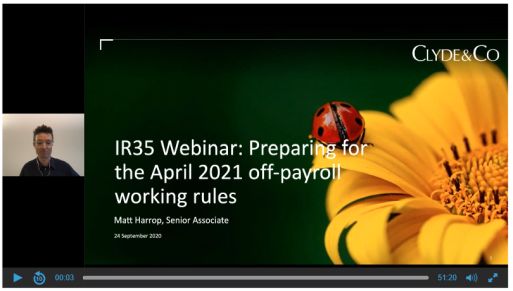April 2021 will see the most significant change to worker tax for many years. The reforms will affect large and medium sized businesses in the private sector which engage independent contractors through intermediaries such as personal services companies.
From April 2021, the responsibility for determining a contractor's employment status will switch to the enduser business, and if it determines that IR35 applies, PAYE and NICs will become the responsibility of the fee payer (i.e. the entity which contracts directly with the contractor's intermediary). End-users who ignore the new rules could end up with significant extra tax liabilities and penalties.
Now is the time to start planning for the changes. The pandemic has forced many businesses to review staffing plans, and as businesses recovers, it they will be looking to temporary workers to provide them with short-term access to key skills. The final rules, set out in the Finance Act 2020, are widened in scope so businesses should now review their previous preparation for the reforms to ensure that this reflects the final legal framework.
Get ahead and plan now - April 2021 is just around the corner.
Key learning outcomes
In this webinar, we will be covering:
- When do the new rules apply and how do they work?
- How the rules have changed since the draft legislation became the Finance Act 2020
- The options for labour supplies which avoid IR35, and the pros and cons of each of them
- What you need to do now to prepare for the rules coming into force on 6 April 2021
- What status determination statements are, how to ensure yours comply with the rules and the merits of using HMRC's CEST tool
Click here to watch the recording
The content of this article is intended to provide a general guide to the subject matter. Specialist advice should be sought about your specific circumstances.

